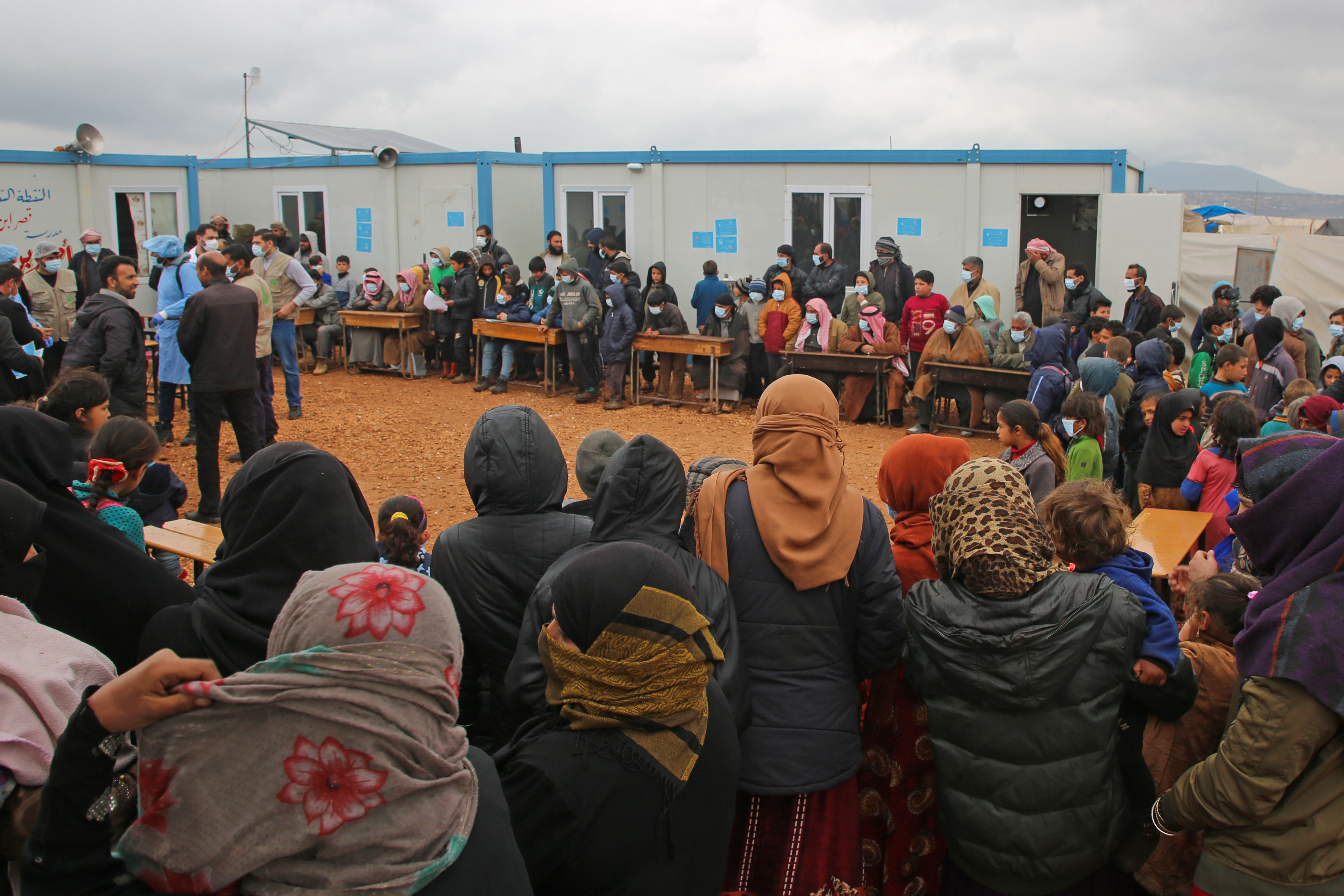The concern among aid workers in Syria has risen several notches. At the time of the coronavirus, the routine precariousness of the refugee camps makes them time bombs. For the time being, the pomegranate remains pinned: the majority of the regions where the displaced are piled up remains spared. But for how long ?
Read also: In Syria, the "economic war" rages in devastated cities
“ I am extremely worried , breathes by telephone Tue Jakobsen, who coordinates the humanitarian response in Syria for CARE. Everything that is effective in preventing an epidemic from spreading cannot be put in place . ” More than four million people are trapped between the army loyal to Bashar al-Assad, and the Turkish forces deployed along the border.
Minimal sanitary capacities
On site, the sanitary capacities are minimal. Doctor Raphaël Pitti, a good connoisseur of the region, reviews the resources available: “600 doctors for 4.2 million people; approximately 150 intensive care beds; and not a single device for measuring blood gases, which is essential in the intensive care unit ”. At the UOSSM (Union of Organizations of Rescue and Medical Care), an action plan was devised in 2.5 hours of videoconference with the Idlib medical committee. "The goal is to protect caregivers, increase the number of mobile clinics, and imagine a containment camp," explains Dr. Pitti, member of the UOSSM. The Quai d'Orsay crisis center allocated 1.5 million euros to finance the effort.
Adding to concern, a first death related to covid-19 was listed by the UN on April 2, in a hospital in Qamishli, a city in northeastern Syria controlled by the Kurds. The information was not revealed until two weeks later, raising fears of a spread in the country.
The only good news: the pandemic had the merit of stopping the bombing. By phone, several doctors and aid workers confirm the good performance of the ceasefire. What allow the Syrians, malnourished and exhausted by nine years of war, to benefit from better diligent humanitarian aid, in particular via the Turkish border post of Bab-Al-Hawa.
The density here is 40,000 people per square kilometer. Four times more than New York!
Ram Das, Chef de Mission for Care at Cox's BazarIn contact with fragile populations, NGOs are redoubling their efforts to raise awareness of barrier actions. "We rely on tribal leaders and religious authorities to get messages across, " said Martin Rosselot, who heads the "Iraq" mission for Première Urgence Internationale.
Rohingya people at the center of concerns
In Bangladesh, it is at Cox's Bazar that the eyes turn. Hundreds of thousands of Rohingyas have clustered in a narrow strip of land after a bout of fever from the Burmese military army, suspected of genocide. Joined on the spot, Ram Das, head of mission for CARE, recalls that the population density here is 40,000 people per square kilometer. "It's four times more than New York!" . Bangladeshi authorities tested several people with fever; all were negative at Covid-19. For its part, the UN High Committee for Refugees is trying to convince the Dhaka authorities to urgently establish new hospital facilities.
We manage fifty crises at a time
Florence Daunis, director of operations at Handicap InternationalIn Africa, “we've been preparing since January,” says Augustin Augier, head of the medical NGO Alima, present in twelve countries on the continent. “In the Central African Republic, there are three intensive care beds… for the whole country. In Burkina Faso, there are 50 times fewer doctors per inhabitant than in France, ”he cites examples of the health vertigo in which the continent is plunged. The 1,000 death mark was crossed on April 17, according to an AFP tally, but WHO estimates that the epidemic can still be controlled there.
"We manage fifty crises at the same time," sums up Florence Daunis, director of operations at Handicap International, who also fears that displaced persons with disabilities are the default victims of this all-out hospital overload.

